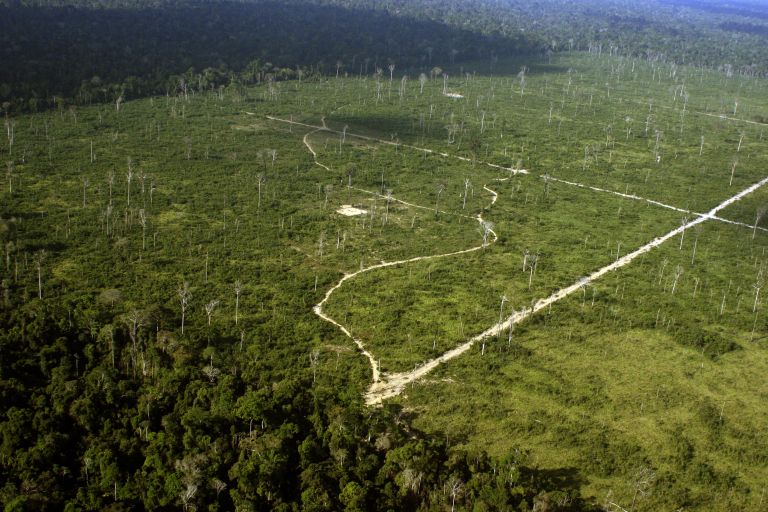
Photo credit leoffreitas
GreenPeace released a damning report last month called Slaughtering the Amazon in which it detailed how the Brazilian cattle sector is the largest driver of deforestation in the world.
In this shocking exposé Greenpeace detailed how:
- Cattle are responsible for about 80% of all deforestation’ in the Amazon region. In recent years, on average one hectare of Amazon rainforest has been lost to cattle ranchers every 18 seconds.
- Analysis by Greenpeace of 2006–2007 satellite data and forest clearance permits reveals that more than 90% of current Amazon deforestation was illegal.
- The Brazilian government has invested in many of the large beef producing companies.
- Greenpeace identified hundreds of ranches within the Amazon rainforest supplying cattle to slaughterhouses in the Amazon region belonging to Bertin, JBS and Marfrig
The report goes on to name many well known brands who are buying the products of this illegal deforestation (often unwittingly) – names such as Unilever, Colgate Palmolive, Johnson & Johnson, Nike, Reebok, Addidas, Boss, Geox, Gucci, Hilfiger, Louis Vuitton and Prada, amongst a long list of other extremely recognisable names.
Then comes news this week that:
Responding to allegations that major Brazilian cattle producers are responsible for illegal forest clearing in the Amazon, Brazil’s development bank BNDES will soon require processors to trace the origin of beef back to the ranch where it was produced in order to qualify for loans
Furthermore, as a result of the report:
Brazil’s three largest supermarket chains, Wal-Mart, Carrefour and Pão de Açúcar, last week announced they would suspend contracts with suppliers found to be involved in Amazon deforestation, while Bertin, the world’s largest beef processor, saw its $90 million loan from the International Finance Corporation withdrawn. Marfrig, the world’s fourth largest beef trader and one of the firms named in the report, said last week it will no longer buy cattle raised in newly deforested areas within the Brazilian Amazon. Meanwhile a Brazilian federal prosecutor has filed a billion dollar law suit against the cattle industry for environmental damage. Firms that market tainted meat may be subject to fines of 500 reais ($260) per kilo.
This is a spectacular win for Greenpeace, the Amazonian Rainforest, and all of us who depend on it for life on our planet.
It is not over yet. The traceability program depends on ear tags which are removable and so can be gamed. True traceability would use chips and would be independently verified. Still, this is a big step in the right direction and massive kudos are due to Greenpeace for this win.
Related articles by Zemanta
- Ready meals and designer shoes fuelling destruction of the rainforest (telegraph.co.uk)
- Supermarkets ‘harming rainforests’ (guardian.co.uk)
- Supermarkets accused over rainforest (guardian.co.uk)
- Amazon rainforests pay the price as demand for beef soars (guardian.co.uk)
- Global supply chains guilty of ignoring climate risks (businessgreen.com)
- Brazil Development Bank to Require Tagging to Stop Deforestation Beef (treehugger.com)

